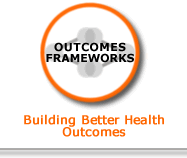 |
E. Evidence for staff training and development (Enforcement model) |
Summary There is highly processed and review-level evidence to support specific training for criminal justice staff in addiction, trauma and gender-specific needs of women and offenders to enable effective engagement and care planning for recovery. There is evidence from one systematic review that a range of interventions may influence positive outcomes in reducing social and structural stigma associated with substance misuse. Rationale NICE Clinical Guideline 51 [1] general considerations on drug misuse psychosocial interventions include the following:
In the literature and policy review conducted for the Better Health, Better Lives for Prisoners framework the authors conclude in their evidence summary of literature [2] to reduce harmful use of illicit drugs in prison that prison residential officer addictions education would help positive engagement with prisoners about reducing their drug use. A holistic throughcare approach is also identified, to involve families (where helpful), addictions, mental health, housing, education and employment services to break the cycle of drug use, mental health problems, worklessness, homelessness and imprisonment. Available US-based evidence suggests that offering treatment to female drug-using offenders is effective in reducing drug use and reducing re-incarceration (but not rearrest). The review authors highlight conclusions from a specially adapted therapeutic community study on the importance of providing gender-specific sensitive and comprehensive approaches within the criminal justice system (Sacks 2008). In addition the recognition of trauma in gender responsive treatment (GRT) was an important aspect of recovery that needs to be addressed due to its impact on a range of other outcomes, also perhaps enhancing treatment satisfaction consequently encouraging retention and recovery (Messina 2010). [3] There is some evidence that communicating positive stories of people with substance use disorders reduced stigmatising attitudes among the general public towards heroin and alcohol dependence. However, information factsheets did not achieve meaningful change in stigmatising attitudes among the general public. In relation to professional groups, the available evidence suggests educational interventions targeting medical students achieve enhanced results when contact-based approaches facilitating interaction with people with substance misuse problems are included in training and curricular. There was evidence of improving attitudes and comfort levels towards working with this population, notably significant increases in comfort were found from specialist prenatal clinic placements working with pregnant women with substance use disorders. Finally, skills-training working with police officers and interventions targeting substance use counsellors have also demonstrated positive effects on stigma-related outcomes. [4] Scottish policy and practice note The Commission on Women Offenders was established by the Scottish Government in June 2011 to look at ways to improve outcomes for women in the criminal justice system. Recommendations encompass service redesign, alternatives to prosecution, alternatives to remand, sentencing, prisons, community reintegration and leadership, structures and delivery. Recommendation 30: Gender-specific training for all professionals working with women prisoners. After accepting this recommendation, the Scottish Government second annual update on progress (October 2013) stated an SPS induction package for new staff in being revised following an operational pilot, and a comprehensive training plan for existing staff is being developed for roll out to staff Summer 2014. The training includes the SPS’s guidance on managing women offenders, training on mental health, trauma, mentalisation and borderline personality disorders and training on services and reintegration for women offenders.
|
References:
|

